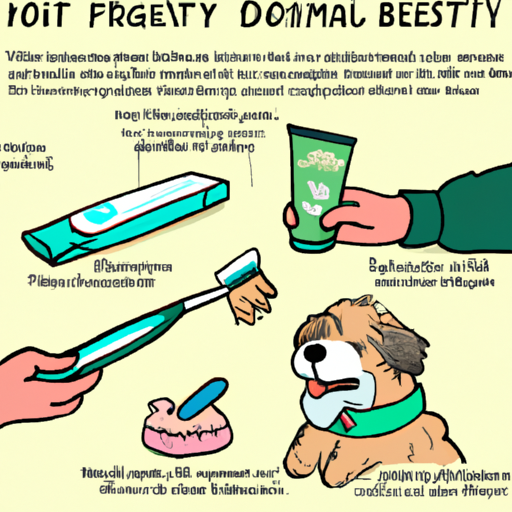Understanding the Causes
Firstly, it’s essential to understand that your dog’s bad breath could be the result of several factors. It could be due to a poor diet, a lack of dental hygiene, or even underlying health issues.
- Poor diet: Just like in humans, a diet high in processed foods can lead to bad breath in dogs.
- Lack of dental hygiene: Dogs, too, need their teeth brushed regularly to prevent the buildup of plaque and bacteria.
- Underlying health issues: Sometimes, bad breath could be a sign of a more serious health issue, such as diabetes, kidney disease, or liver problems.
Improving Your Dog’s Diet
A balanced and nutritious diet is key to ensure your dog’s overall health and maintaining fresh breath.
-
High-quality dog food: Opt for dog food that lists a protein (like chicken, beef, or fish) as the first ingredient, and does not contain artificial colors, flavors, or preservatives.
-
Healthy treats: Treats should be given in moderation and it’s advisable to choose ones that promote dental health.
-
Fresh water: Always ensure your dog has access to fresh water. Dehydration can cause dry mouth, leading to bad breath.
Maintaining Dental Hygiene
Regular brushing is the most effective way to keep your dog’s mouth clean and breath smelling fresh.
-
Dog-safe toothpaste: Never use human toothpaste for your dog. Instead, invest in a toothpaste specifically designed for dogs.
-
Regular brushing: Aim to brush your dog’s teeth daily, or at least several times a week.
-
Professional cleaning: Consider getting your dog’s teeth professionally cleaned once a year.
Regular Vet Check-ups
Routine vet check-ups are crucial to detect any potential health issues that might be causing your dog’s bad breath.
Table: Recommended Vet Check-ups
| Age of Dog | Recommended Frequency |
|---|---|
| Under 1 year | Every 3-4 months |
| 1-7 years | Once a year |
| Over 7 years | Twice a year |
Using Dog Breath Fresheners
There are several dog breath fresheners on the market that can provide temporary relief from bad breath. However, these should not replace good dental hygiene and a balanced diet.
-
Dental chews: These can help reduce plaque and tartar build-up.
-
Breath sprays: Use these sparingly and only as a temporary solution.
-
Water additives: These can help freshen your dog’s breath and maintain oral health.
FAQ
Q: How often should I brush my dog’s teeth?
A: Ideally, you should brush your dog’s teeth daily. If that’s not possible, aim for several times a week.
Q: Can I use human toothpaste for my dog?
A: No, human toothpaste can be harmful to dogs. Always use dog-safe toothpaste.
Q: How often should I take my dog to the vet for a check-up?
A: It depends on the age of your dog. Puppies should see the vet every 3-4 months, adult dogs once a year, and seniors twice a year.



